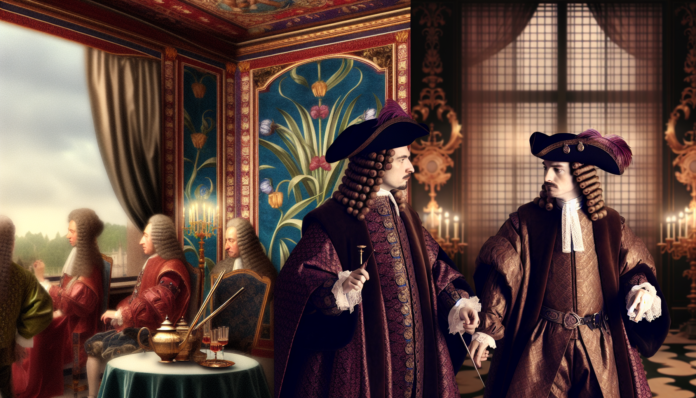Introduction
In the heart of the 18th century, scandal and intrigue often permeated the glamorous courts of Europe. One of the most captivating tales centers around King Louis XV of France. Known for his charm and charisma, the king’s reign was emblematic of opulence. However, it was the whispered affairs and secret liaisons documented in his hidden diaries that captivated a nation and brought forth debates on morality and power.
During Louis XV’s reign (1715-1774), France was fraught with political unrest and social stratification. The court of Versailles was a stage where the elite indulged in extravagance, yet societal norms dictated that such indulgence should remain veiled. The public often turned a blind eye to the king’s notorious escapades, revealing a complex relationship with morality and power that still resonates today.
The Scandal
The heart of the scandal lay within the pages of Louis XV’s diaries, which chronicled his numerous romantic entanglements. One particularly explosive episode involved his infamous affair with Madame de Pompadour, a woman who rose from the ranks of common birth to become the king’s chief mistress. Their relationship was more than mere dalliance; it was a political alliance that dramatically altered the landscape of French politics.
Key events surrounding the affair included lavish soirées where whispers of their romance would spark outrage among nobles. The pairing of a king with a commoner defied societal norms, illustrating the intersection of passion and power. In an entry dated 1750, Louis wrote, “She understands me like no other, our bond transcends mere lust.” This candid reflection offers a glimpse into the complexities of their relationship—love, ambition, and betrayal intertwined.
Public reaction was a mélange of fascination and disdain. While some courtiers lauded Madame de Pompadour for her influence on art and culture, others criticized her, arguing she wielded too much power over the king and his decisions. The clergy were particularly incensed; their writings echoed throughout pamphlets, condemning the affair as a moral lapse of the highest order.
Moral and Cultural Analysis
The scandal ignited fierce public debate about morality and integrity in leadership. While many accepted that rulers had mistresses, the visibility of Louis’s affection for Pompadour challenged the expectations of decorum. Blame was quickly apportioned; the king was seen as a weak figure easily manipulated by a woman, undermining traditional power dynamics.
Consequences were dire, both politically and personally. Though Louis XV remained unshaken in his position, the public’s faith in his rule began to wane, eventually contributing to the discontent that sparked the French Revolution a few decades later. The ensuing turbulence redefined the monarchy’s role in society, leading to a seismic shift in power structures.
Today, had such a scandal emerged in the age of social media, its ramifications would be magnified exponentially. The public fascination with royal scandals is still prevalent, yet modern values emphasize transparency and accountability. Coupled with a more pronounced discourse on gender dynamics, the narrative would likely skew towards questioning the ethics of power and the portrayal of women as mere pawns in a male-dominated landscape.
In contrast to the 18th century, when whispers and written words held sway, today’s digital age fosters instantaneous judgment. Social media platforms would likely amplify discontent, resulting in swift consequences not just for the individuals involved but also for the institutions they represent. The debate around power, passion, and morality—one that began in the gilded halls of Versailles—remains as relevant as ever.

